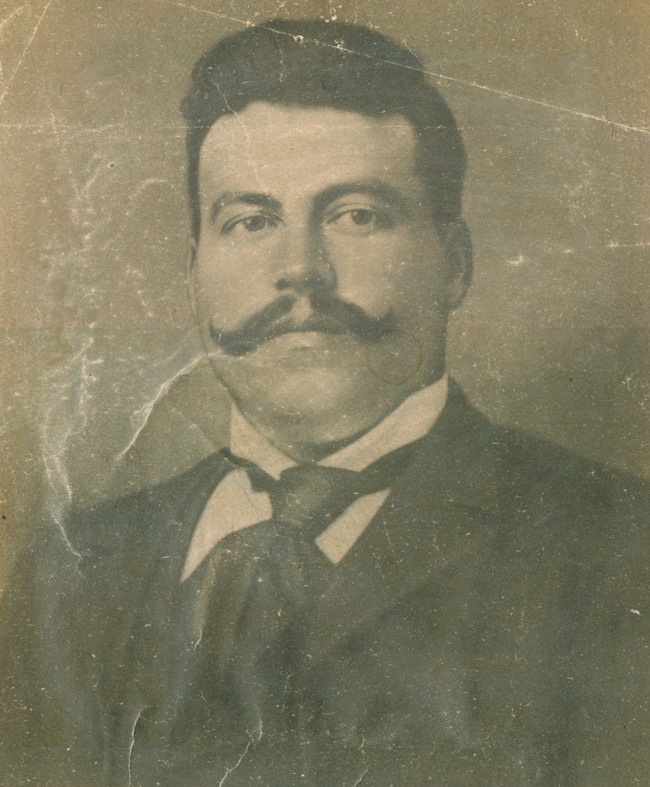Goce Delcev’s image adorns the living rooms, school rooms, and church halls of many places around the world that Macedonians call home. We sing about him in our folk songs, and hold his virtues and wisdom to the highest standard.
Or so we think.
Like many heroes, Goce is often celebrated and revered, but not understood. As the famous Macedonian folk song says, “We don’t have our Goce Delcev anymore/to wave the Macedonian flag/but he gave an oath to his people/to fight on and not forget the Macedonian name”. We have placed upon ourselves the burden of Goce Delcev’s sacred struggle, but we are more content affirming Goce Delcev was Macedonian, than living by his ideals. There are two lessons from the life of Goce Delcev that we desperately need to hear and apply today.
In 1891, Goce Delcev left Solun to pursue higher education at the Sofia Military Academy in Bulgaria. The 19-year-old Goce was already showing himself to be rebellious by nature, and not afraid to live by his convictions. A few years before, at the Cyril and Methodius Men’s High School in Solun, during an outing in the school yard in which songs were sung to the local Turkish vali on the occasion of the Sultan’s birthday, the boys were forced to shout “çok yaşa!” (long may he live). Young Goce however, electrified the schoolyard by shouting “aşaği!”(down with him). This was the strength of his convictions—surrounded by Ottoman officials (who thankfully did not hear him) he openly defied the Ottoman Empire. However, a few years later, Goce went on to enroll in the military academy, since jobs for teachers were incredibly scarce in Macedonia. During his first few months there, he noticed many students were openly hostile to a student by the name of Hussein Tefeikov. Hussein’s family, although not being ethnically Turkish, was considered as such since they had converted to Islam generations back. The idea of a Muslim Turk in the ranks was repugnant to many of the students—all of whom had no doubt experienced the brutality of centuries of Turkish rule. Goce was also disgusted—at the students. Seeing the boys ridicule and torture Hussein was appalling to him. To Goce, it was as intolerable for Macedonia to be under Ottoman rule, as it was for Turks to be outcast and vilified for being Turkish. Goce would later go on to befriend him, a sign of humility and common ground we desperately need today.
Goce would be appalled by our divisiveness today. We are not only split amongst ethnic lines, but also political, and even geographic. When Goce spoke of Macedonia for the Macedonians, he quite literally meant everyone in Macedonia, who by virtue of living in Macedonia could be considered Macedonian. Today we have Macedonians that are ethnically Macedonian, but also Albanian, Turkish, Vlach, Serb and so forth. We have shared this mountainous patch of earth called Macedonia for centuries. Yet, we lost our ways. Not only do we exclude our neighbors, but also we now exclude ourselves. I remember by baba’s stories of her youth about how during the days of food shortages under socialism, Macedonians and Turks would share what little food they had to ensure they all survived the winters. Now, in the days of higher thinking, whole churches, communities, and even organizations in the diaspora have hostilities toward each other. We see the fight for Macedonia as a zero sum game—some will have to lose for us to win. The Ottoman Turks back in the day were bewildered as Muslims how Orthodox Christians were so easily betraying each other for lira. This is the curse that we have to break. If we want any hope of our country and nationhood surviving another quarter century, we need to make changes. We can no longer marginalize and denounce members of our own communities. Goce knew that Ottoman Empire ruled for centuries because the people could never unify, and they fed off that disunity. Today, those who wish us ill are no different. When Greek and Bulgarian organizations see the chaos that erupts between our communities, they are only incentivized to pursue their agendas even further. Not only do we have to unify, we have to unify across political and ethnic lines. When Goce dreamt of a free and prosperous Macedonia, he realized such goals would never be achieved when small acts such as disdain for the “others” still persisted. We have to realize that a future that excludes anyone in Macedonia is a future that excludes all of us.
Later on in life, Goce was a head inspector of schools in most of Macedonia, which served as a perfect guise for his revolutionary activity and travel. As a natural leader of the revolutionary committee he received many correspondences from various key individuals that were in charge of bringing weapons—both physical and of the mind—into Macedonia. However, in 1895 а hotheaded revolutionary by the name of Aleksandar Chakurov tried to independently launch a pre-mature rebellion in the Vinista region, his assumption being that Russia would notice and step in to help. Goce, writing to a local chairman responsible for arms transport in Kyustendil, Bulgaria fired off and blasted the foolishness of such thinking. “Did His Grace (Chakurov ) believe his own words, what he said verbally and in letters to G. Ivanov: ‘I’ll raise an internal rebellion, and as soon as the banner is unfurled, then Russia, O glorious Russia, will fly into Macedonia on the spot, and there you are—we are free’??!! Is that what he thinks? Is this how we educated our rebels? If you feed the people with such empty hopes then you must realize that even the most outstanding hero will fall into utter despair.”
But let’s forget Macedonia’s inane love affair with Russia—the sole reason behind Bulgaria’s existence. I will not discuss how all of Macedonia would today be Bulgarian if the Russian-backed Treaty of San Stefano was not overturned. The problem is not who we place our trust in. It’s the fact that we do so much. Goce knew, perhaps better than anyone, how solving one’s problems begins with a deep look in the mirror. When we blame others for our problems, and then expect others to save us, we live inside a contradiction. We omit reality and pursue a dangerous path of unrealistic expectations. The truth is, no one, not President Trump nor Premier Putin, can save us. The path to prosperity is arduous. It requires an honest evaluation of our own problems, and not a projection of them upon others. Let’s remember Goce’s famous line, “The revolution of the heart, mind and soul of an enslaved people is our greatest task”. We are no different, even centuries later. We are enslaved by our way of thinking where we do not embrace reality and work to shape it in our image. Macedonians waited for 500 years for a glorious liberator. Goce was the first to tell us no one would come and we would not taste freedom if we did not do it ourselves. We mourned his death, but then we moved on and placed our trust in Bulgaria, then Serbia, then the United States, and now Russia. When will the time come when we place our trust in the Macedonian people? Goce Delcev, a man whom we gave an oath and try to fulfill every single day, awaits our answer.
—
The views of the author may not necessarily reflect the views of the United Macedonian Diaspora and Generation M.

